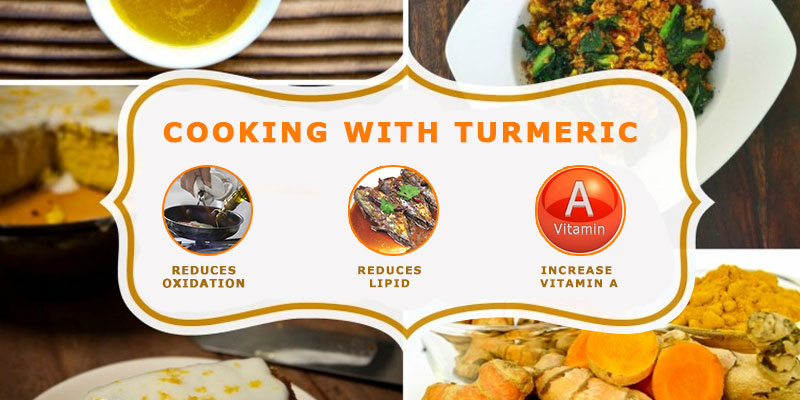Since thousands of years, spices boast of being a ‘sought after’ commodity. Not only does turmeric present itself to be conveniently available, but it also offers numerous health benefits and complements our kitchens especially for Asian cuisines. Further, by virtue of the medicinal properties that this spice possesses, it protects food and prevents it from going bad. Moreover, it has inherent powerful properties that enhance the nutritional potency of food, eliminates the effects of harmful elements, and facilitates the absorption of good constituents during digestion.
The Various Ways Where Turmeric Helps Our Food Are:
Reduces oxidation of oil while heating – It’s common knowledge that oxidation is a natural outcome when edible oils like soybean, coconut, groundnut, and other similar oils are subjected to heating. The process of oxidation is immensely reduced when a dash of turmeric is added to oils. The spice has antioxidant properties that help in the reduction of the oxidation of oils while frying. This ultimately vastly reduces the risk of cancer and even other diseases when that oil is consumed or the food which is cooked in that oil.
Reduces Lipid Peroxidation – Lipid content in foods especially in meat, fish, and poultry products is high which actually translates into a high-fat content. Needless to bring out, this becomes extremely harmful for consumption after heating for the simple fact that the lipid content in these undergoes peroxidation. When marinated and then cooked with turmeric, the degree of lipid peroxidation reduces which also reduces the risk factors of occurrences of diseases by their consumption.
Increases Bioavailability of essential Nutrients – Studies have shown that while consuming foods, most of the essential nutrients are just not absorbed by the body and in fact, passed out through the alimentary canal via excretion. Thus, the benefits of the food that we actually consume does not fructify into potent results. Progressive research on one essential compound, Beta Carotene (vitamin A), has revealed that turmeric enhances its availability in the food. This is an important nutrient contained in vegetables like carrots, pumpkins, and sweet potatoes, etc. Preservation of these vegetables in a very ‘passing’ manner destroys their nutritional content to a large extent. Turmeric, due to its inherent properties, helps the preservation of the nutritional content of vegetables like spinach and amaranths, etc.
It would be relevant to caution that turmeric should not be taken in large quantities that too for long. Having one to one and a half teaspoon of turmeric powder per day is safe enough and can be continued for a lifetime. Though not spicy like chilli, ginger, or garlic, this spice is mildly pungent. It also possesses a mildly bitter and astringent flavour. Undoubtedly, turmeric, whether fresh or dried or sweet or savoury, will bring sunshine to our plates.

